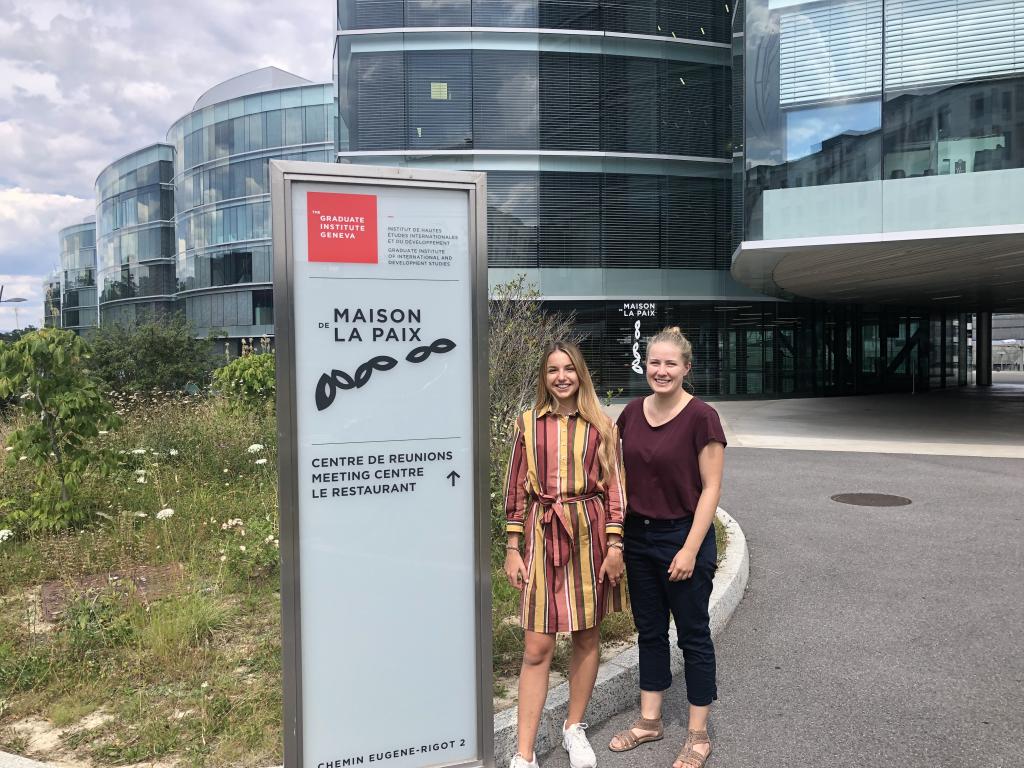Bettina Kast (MIA): 'During my second year of Master in International Affairs, I was collaborating with the CIES for my thesis and during a couple of months, I also worked directly on the project on policy uncertainty. Working together with Eva Bortolotti, my thesis was on investors’ policy perception in the field of e-mobility. We have established an online survey which included a choice experiment and distributed it amongst European investors. In our theses, Eva and I evaluated different parts of this survey.
The cooperation with CIES was a very nice experience, not only because of the friendliness of the people at the centre but also because of the support I received for my dissertation. Especially in the early stages of the thesis, I appreciated the guidance given by the embeddedness in the research project on financing cleantech. The overall frame of the topic was given and since Professor Noailly is knowledgeable in the field, her advice was crucial to sharpen my idea of where I want to go with my thesis and how I can get there. Throughout the entire process, Professor Noailly was eager to help with the various issues Eva and I encountered. Our frequent online sessions were not only supporting the thesis but - to be honest - also a welcome change during the lockdown days. I appreciated being part of the research project and believe it was beneficial to my study experience.'
Eva Bortolotti (MDev): 'My involvement with the CIES NRP73 research project ‘Financing investments in clean technologies’ started in the autumn semester 2019 and covered two different workstreams. The first included an assignment as research assistant to support the research of two PhD candidates. In this regard, I labeled articles on environmental policy with the final objective to contribute to the development of an index of environmental policy uncertainty through machine learning. The second workstream was instead directly linked to my Master thesis, which became part of the research project. Together with my colleague Bettina, we designed and administered a survey to European investors during the spring semester 2020. The survey included a conjoint analysis experiment to elicit policy preference of investors in the electric mobility sector, and therefore develop policy recommendations to redirect private capital to the sustainable mobility transition. Given the current health crisis, my research also expanded its scope to explore investors’ beliefs about the impact of the COVID-19 crisis on their cleantech investments.
Working with CIES gave me unique insights of the day-to-day work of a research center and the structure of a PhD project. It shed light on the different steps involved in doctoral research and the use of machine learning techniques. In the context of the thesis, it also gave me the opportunity to interact with a range of both academic and non-academic actors. For example, I attended NRP73 research project partners meeting at EPFL, where I met both the industry and policy partners, discovering the interests of actors as Switzerland Global Enterprise and the OECD towards these streams of research. In order to collect contacts of investors and better understand the cleantech investment landscape, I attended the Energy Star-Up Day happening in Zurich in November 2019.
Overall, writing the thesis in relation to the research project has been both challenging and rewarding. It helped me to understand the value of exploring very new streams of research to develop policy-relevant findings, and to quickly adapt the research design in response to the relevant events of the COVID-19 pandemic. It taught me the value of teamwork, cooperation and informed confrontation with other researchers. Students of the Graduate Institute are very lucky to experience an academic environment very close to the reality of research, a unique opportunity that every Master student should be aware of.'


